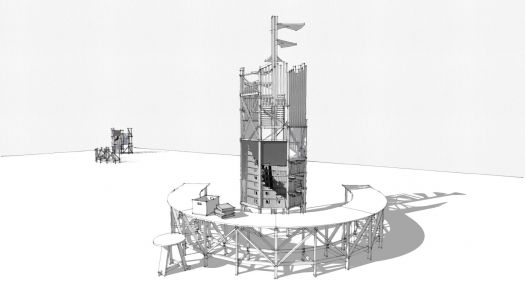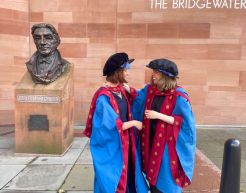Institute of Urban Dreaming occupies Manchester School of Art
21 February 2017
Temporary Research Space takes residence in the Benzie Building
A new Temporary Research Space has taken residence at the School of Art. Designed and developed by the Institute of Urban Dreaming, the space has arrived at the School following a successful installation at the People’s History Museum and will soon be travelling to the Tate Liverpool.
This large, wooden structure containing bookcases, a screen, table and chairs, will be occupied by different students, groups and staff for one week at a time between Monday 13 February and Friday 31 March 2017. The work showcased will relate to themes such as housing, dispossession, displacement, capitalism, space home and Utopia that are central to the wider work of the Institute of Urban Dreaming (IUD).
The IUD itself is a collaborative, interdisciplinary project based in a council tower block in Salford, formed by Senior Lecturer of Interactive Arts at Manchester School of Art, Jane Brake, and John Van Aitken from the University of Central Lancashire. Their work attempts to create a conversation about social cleansing, displacement by development, privatization of public housing and the consequential geographies of planetary development.
Alongside, their work coordinating ‘DEMAND Utopia!’ the pair have also produced the publication All Materials of Value: Reponses to Walking in Salford, which brings together a set of visual and written responses to a council estate in Pendleton, Salford, such as prints from a Salford Rubber Stamp Set by Brígida Campbell and poetry by Nicola Clewer. Copies of All Materials of Value to take away can be found on the bookshelves of the Temporary Research Space.
After its time at Manchester School of Art, the Temporary Research Space will move onto the Tate Liverpool, where it will showcase a collection of photographs, books, articles and videos exploring the dispossessions and displacements behind the visual drama of China’s hyper urbanisation, drawing upon recent fieldwork in Guangzhou. It will also host two roundtable discussions about China’s urban development and potential parallels to the UK.



